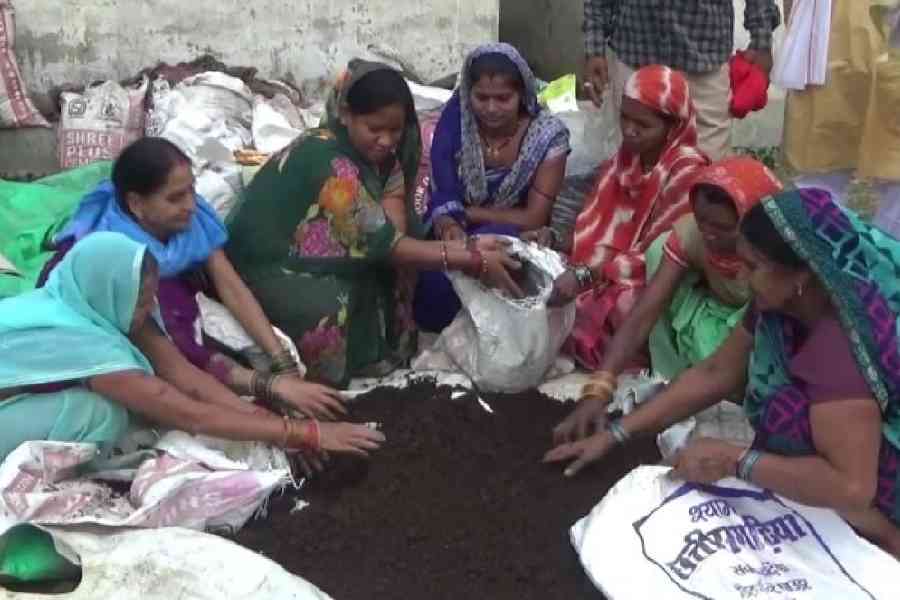It is a low-hanging fruit that costs nothing and, yet, pays rich political dividends. Last week, minutes before the Nari Shakti Vandan Abhinandan event of Prime Minister Narendra Modi in Barasat, the West Bengal chief minister, Mamata Banerjee, announced a hike in the monthly honorariums of anganwadi workers and Accredited Social Health Activists of her state, apparently to douse the fire lit by the Sandeshkhali controversy.
The hike of Rs 750 per head in West Bengal will bring the wage of ASHAs and anganwadi workers to Rs 9,000; helpers will now make Rs 6,500 after a hike of Rs 500. This cannot be called anything but meagre. Yet, from time to time, most governments offer such doles ahead of the election season to a battery of important frontline health aid workers as a political ploy.
If the Trinamul Congress tried to assuage them with a wage hike ‘despite a financial crunch’, the Modi government decided to extend the benefits of Ayushman Bharat Scheme to all ASHAs, anganwadi workers and helpers earlier this year. At this nominal cost, these political parties aim to use these frontline workers to carry their political goodwill to an important constituency — women.
Otherwise rendered invisible, these female frontline workers — a quiet source of support for millions of mothers and their children across the country — wield a strong influence on the urban and rural poor and are therefore critical allies for political parties. These highly motivated social workers are harbingers of hope for millions, a bridge between the bureaucracy and the beleaguered last line of the community.
Together with over a million ASHAs, more than a million anganwadi workers and almost as many anganwadi helpers form the frontline of India’s massive child and women health and nutrition delivery services under the Integrated Child Development Services, which has been around since 1975 and evolved significantly over the decades. They are the eyes and ears of the government for infant and maternal mortality, anaemia, malnutrition, stunted growth, comprehension and much more; they also act like local hubs to store and distribute medicines and pre-cooked meals and keep emergency medical kits. Over the years though, they have been burdened with new tasks and ideas to take the State’s healthcare and welfare delivery to the poor in order to spruce up the State’s image nationally and internationally with regard to women and child health.
However, the actual nutrition and health standards of really young children and women remain pathetic. Achieving such targets cannot merely be a political goal; it has to be a pressing national priority.
An anganwadi worker has numerous tasks assigned to her as part of her responsibilities — she is now virtually a service provider as well as data collector under the Poshan 2.0 tracker. Her helper does the cooking, cleaning, feeding and looking after the children. The entire edifice is, ironically, built around voluntarism. Anganwadi workers and helpers are supposed to shoulder the burden of maintaining the levels of nutrition — poshan in official parlance these days — of children up to six years of age of their own volition for the benefit of the community, while the ASHAs are the first informants and early caregivers.
Across India, these workers have been protesting for a number of demands, including a wage hike and the rationalisation of their work. In Maharashtra, they are decrying their doubling up as nutrition and healthcare providers and digital data collection and entry operators. It is time the Indian State and political parties delinked the caregivers in a fledgeling and floundering healthcare and nutrition system from their political co-option.











